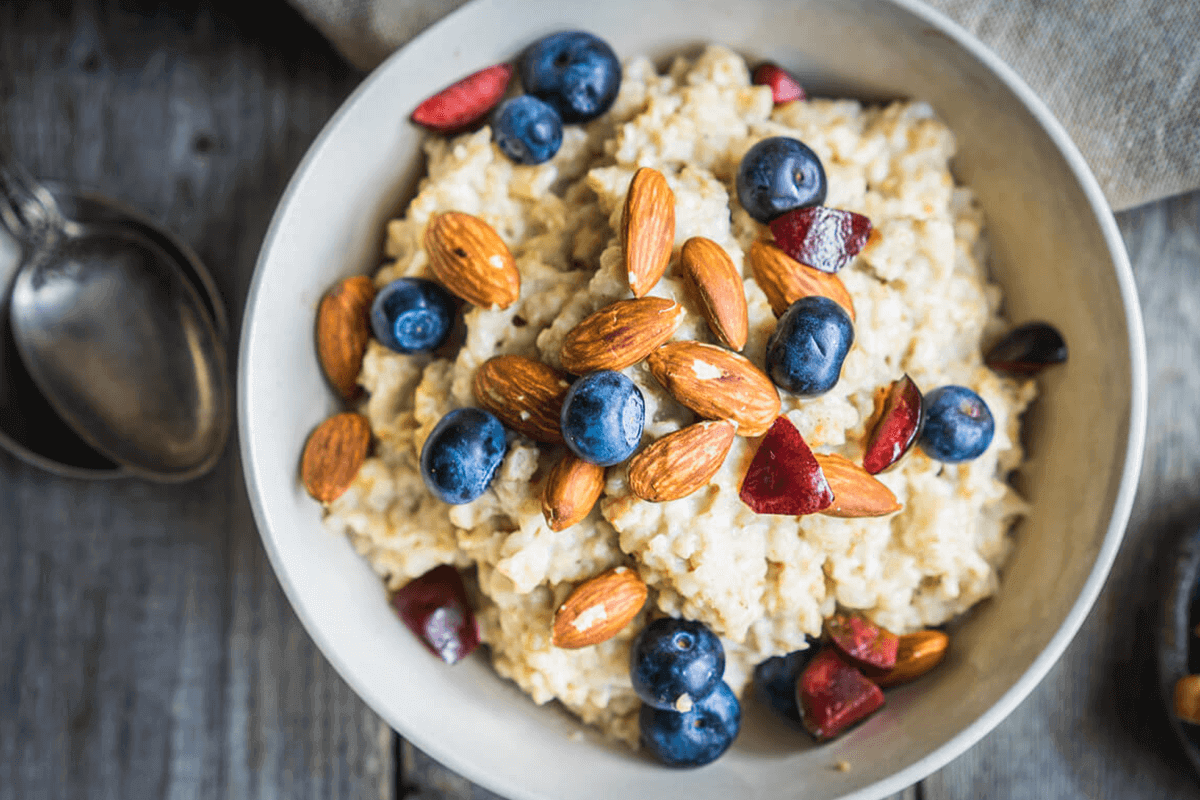Despite advances in medicine, cardiovascular disease remains the No. 1 killer in America—responsible for an estimated one million heart attacks or other coronary events in 2019 alone. (1) What’s behind these gloomy statistics? Genetics can play a role in your risk of cardiovascular disease. An early heart attack in a parent doubles the risk of a heart attack in men and boosts it by 70% in women. Your risk also doubles if your brother or sister has a history of heart disease. But your genetic predisposition isn’t destiny. Your day-to-day habits play a far more pivotal role than your genes or your family history. 74% of all cases of cardiovascular disease are caused by lifestyle choices. (2) And that means you can lower your odds and improve your heart health through the habits you practice every day.
 Your heart loves minimally-processed, antioxidant-rich foods that also help keep inflammation in check.
Your heart loves minimally-processed, antioxidant-rich foods that also help keep inflammation in check.
 High-intensity interval training (HIIT) can be a safe and effective way to enhance your cardiorespiratory health and reduce key risk factors for better heart health.
High-intensity interval training (HIIT) can be a safe and effective way to enhance your cardiorespiratory health and reduce key risk factors for better heart health.
 Looking at the bright side of life boosts happiness and heart health.
Looking at the bright side of life boosts happiness and heart health.
Did you know? 47% of all Americans have at least one of three key risk factors for heart disease: high blood pressure, high cholesterol, or smoking. (3)
Lifestyle factors that contribute to heart disease
- Obesity (4)
- Abdominal weight gain (5)
- A lack of exercise (6)
- Smoking (7)
- A diet high in ultra-processed foods (8)
- High sugar consumption (9)
- Stress (10)
- Lack of sleep (11)
- Having a pessimistic outlook (12)
 Your heart loves minimally-processed, antioxidant-rich foods that also help keep inflammation in check.
Your heart loves minimally-processed, antioxidant-rich foods that also help keep inflammation in check.
Best diets for heart health
One of the most important factors for a heart-healthy lifestyle is your diet. The foods you eat can either be pro-inflammatory or anti-inflammatory. Inflammation plays a key role in the development of a cardiovascular disease, yet many of the foods commonly found in the typical American diet stoke low-level inflammation throughout the body. (13) The biggest culprits are processed foods high in refined grains, sugar, sodium, and unhealthy fats. (14)(15)(16)(17)(18) These foods also contribute to weight gain, which can undermine heart health. During one recent study, 20 people were fed either a diet filled with ultra-processed foods or a diet based on unprocessed foods. After just two weeks, the researchers found that those eating processed foods consumed approximately 500 calories more each day and gained more weight than those in the unprocessed group. (19) On the flip side, a heart-healthy diet revolves around unprocessed fruits and vegetables, lean meat, fish, eggs, whole grains, nuts, and good-for-you fats. These foods are packed with heart-healthy nutrients that reduce inflammation and oxidation that can damage arteries. (20) They also support healthy blood pressure and cholesterol levels, as well as a healthy weight. Two whole foods diets that consistently get high marks for their cardiovascular benefits are the Mediterranean diet and the DASH diet. (21) The popular ketogenic diet, which is a low-carb and high fat way of eating, has also been shown to improve some important cardiovascular risk factors like cholesterol, blood pressure, and obesity. (22)Exercise for heart health
For the healthiest heart, it’s not enough to simply eat right. Exercise matters too. A recent study of 53 middle-aged people that was published in the journal Circulation found that regular aerobic exercise and strength training improve two markers of a healthy heart—maximum oxygen intake during exercise and plasticity in the left ventricular muscle of the heart. (23) While the Centers for Disease Control and Prevention recommends getting 30 minutes of exercise a day, that recommendation should be considered the minimum—and a great starting point if you are new to the exercise game. Here’s why: just 30 minutes of moderate activity can help lower your blood pressure, reign in triglycerides, tame inflammation, and give your HDL cholesterol levels a boost. (24)(25)(26) As you become fitter, challenge yourself with longer or more intense workouts. Clinical trials show that one particular type of exercise known as high-intensity interval training (HIIT) confers multiple cardiovascular benefits, including improved oxygen uptake, better ventricular function, and enhanced endothelial function. And surprisingly, HIIT is more effective than a prolonged moderate-intensity workout for those who are obese or have coronary artery disease and heart failure. (27)(28)
Healthy habits to improve heart health
Because heart disease develops over many years, you have numerous opportunities throughout your life to make positive changes. Here are some heart-smart habits to get you started.Get enough sleep
Sleep is essential for cardiovascular health. Studies show that the risk of a heart attack goes up significantly in those logging in less than six hours—or more than nine hours—a night. (29) The sweet spot? Seven to eight hours of shut-eye every night.Learn to relax
It’s no secret that chronic stress can increase your risk of cardiovascular disease. People with highly demanding jobs can have a 10 to 40% higher risk of developing heart disease. (30) Keep a lid on stress by signing up for a yoga class or a meditation group.Did you know? Slow breathing—equal to about six breaths per minute—has been clinically shown to lower blood pressure while also having a calming effect. (31)
 Looking at the bright side of life boosts happiness and heart health.
Looking at the bright side of life boosts happiness and heart health.

